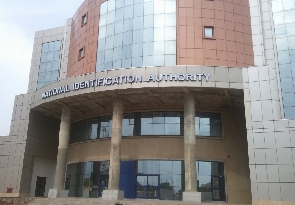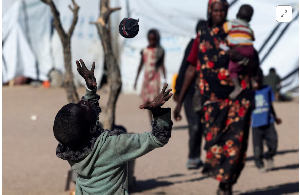Regional Maritime University (RMU) Vice-Chancellor, Professor Elvis Nyarko, says the growing maritime insecurity undermines the legitimate uses of the sea, impairing the exploitation of coastal resources and undermining global security.
He said a study of the situation showed that the region was deficient in coordinated and collaborated maritime law enforcement capabilities and capacity at national, zonal and regional levels.
Prof. Nyarko, speaking at the closing ceremony of a six-week Support for West Africa Integrated Maritime Strategy (SWAIMS) training programme on Maritime Affairs and Security, said the situation had created gaps in the region’s response process to the benefit of the criminals.
The 300,000 Euro funded programme by the European Union is a three-year training, which is a follow-up to the previously organised Maritime Security training course known as the Gulf of Guinea Interregional Network.
Topics, including Maritime Security, Maritime Environmental Security, Blue Economy Security, Maritime Crisis Management, and Fisheries Security and Governance were taught with participants drawn from Gambia, Ghana, Liberia, Nigeria and Sierra Leone.
He said the project aimed at building capacity and competences of middle level staff and personnel of maritime focus agencies and institutions across the West African Region in combating crimes in the Gulf of Guinea (GoG).
The Vice Chancellor said despite the ongoing collective fight against crimes, the region continued to record a surge in criminal activities as criminal syndicates built resistance and exploited gaps in the collaborative security regime.
Prof Nyarko said seafarers’ lives were at risk from ever-increasing violent attacks as the pirates and criminals continued to operate with increased impunity.
These included robberies, kidnapping, violent armed boarding and hijacking and in 2020, the Indian Ocean recorded 36 incidents of which none were classified as piracy.
Prof Nyarko said the number of personnel and vessels impacted by kidnapping incidents in the GoG have been increasing since 2017, with 140 personnel kidnapped in 2018, 135 kidnapped in 2019, 136 in 2020.
He said since the beginning of the year 2021, 15 seafarers had been kidnapped and one killed in a series of piracy and related incidents recorded mostly along border regions and deep offshore outside the jurisdiction of states.
He said these highlights the need for an enhanced cooperation and coordination of efforts in order to deter and interdict the criminals at sea.
“The incidents of kidnap for ransom remain the most significant risk to mariners especially within common maritime borders and zones within the region,” he added.
Prof Nyarko commended the EU for the generous support towards the running of the four-year training project.
Madam Diana Acconcia, Head of the EU Delegation to Ghana, said maritime security was essential for the EU.
She said the sustainability of maritime resources, including fisheries, was a key concern for local communities as well as European customers.
She said secure global shipping lanes were necessary for commerce and trouble-free fishing but despite all these opportunities several threats have been identified in the GoG.
These threats including Illegal, unreported and unregulated fishing, illicit dumping of waste, piracy and armed robbery at sea, including kidnapping, trafficking of human beings, narcotics, arms and counterfeit goods.
She said over the years “we learned from experience that maritime security efforts in the GoG are constrained by some challenges like uncoordinated regional and national responses, relationships among maritime security national structures is limited and sometimes non-existent.”
Also, there is inadequate rapport between the uncoordinated national maritime security agencies on one hand and the emerging multilateral maritime security bodies.
She said in addition to the above, the agencies lack the necessary equipment to execute their functions, which present challenges to the maritime security operations.
Madam Acconcia said the SWAIMS programme might not be able to address all the challenges but it could tackle some of them like strengthening of the governance and law enforcement frameworks and the successful prosecution and adjudication of maritime crimes.
She said given the various threats prevalent in the region, States were compelled to address maritime security, perhaps more than ever.
General News of Wednesday, 10 March 2021
Source: GNA
Growing maritime insecurity undermines global security - Prof Nyarko
Entertainment












